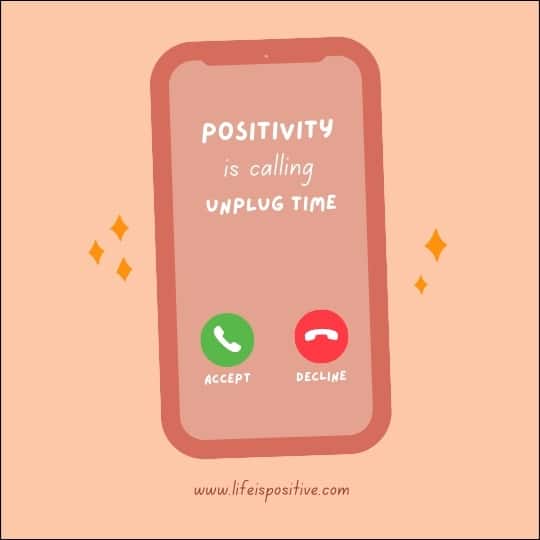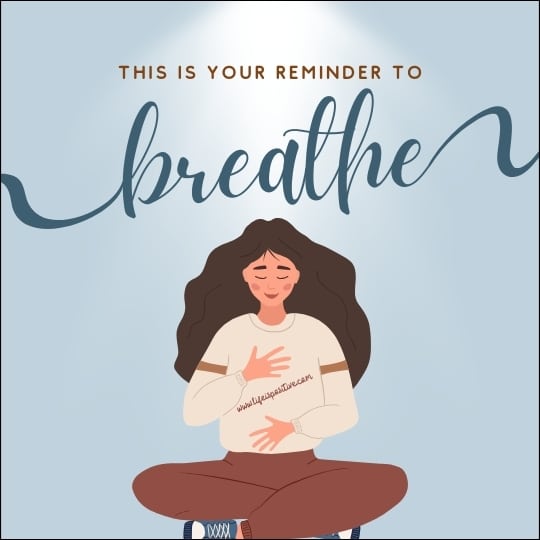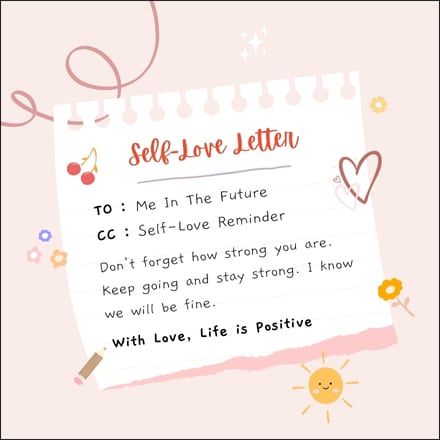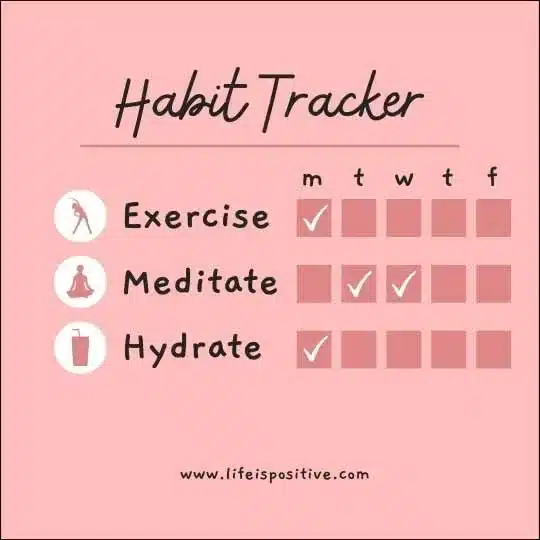|
Getting your Trinity Audio player ready...
|
Ever feel like your brain is a web browser with 50 tabs open—homework, social media, friendships, and a million other things? That’s where mindfulness comes in!
But what is mindfulness for teens, really? It’s like hitting the pause button on life’s chaos and learning to focus on the present moment. No, you don’t have to sit cross-legged on a mountain (unless you want to).
What is mindfulness for teens? It’s a simple way to reduce stress, boost focus, and feel more in control of your thoughts. Ready to learn how to chill out and live in the moment? Let’s go!
Let’s dive into the heart of it…
• Understanding Mindfulness for Teens
• Why Mindfulness Matters for Teens
• How to Practice Mindfulness: A Teen’s Guide
• Mindful Habits
Understanding Mindfulness for Teens
So, let’s talk about understanding mindfulness for teens. You’ve probably heard about it a million times, but what does it actually mean?
Is it just about sitting cross-legged and chanting “Om”? Not exactly.
Understanding mindfulness for teens is more about learning how to keep your cool when life throws its usual curveballs—whether that’s a tough exam, friend drama, or just the chaos of everyday life.
Mindfulness is like a mental relaxation. It’s all about being present, noticing what’s going on right now, without stressing about the past or freaking out about the future.
It’s as simple as focusing on your breath or just paying attention to your surroundings.
When it comes to understanding mindfulness for teens, think of it as your secret weapon for staying calm, cool, and collected. Once you get the hang of it, you’ll wonder how you ever survived without this little life hack!
Read: Top 10 Motivational Best Books To Read For Teenagers
Why Mindfulness Matters for Teens
You might be thinking, “Why should I even care about what mindfulness is for teens?” Fair question! Let’s explore why it matters.
1. Cuts Down Stress and Anxiety
High school can feel like a pressure cooker, but mindfulness is like hitting the cool-down button. Practicing mindfulness helps you relax and tackle stress and anxiety without losing your mind. It’s your personal stress-buster.
2. Boosts Focus and Concentration
Ever find yourself zoning out in class or struggling to get through your homework without getting distracted? Mindfulness has your back. It trains your brain to stay in the moment, making it easier to concentrate and ace your schoolwork.
3. Levels Up Emotional Control
Teenage emotions can feel like a wild ride, but understanding mindfulness gives you a secret weapon to manage those intense feelings. It helps you spot and handle your emotions more smoothly, leading to better relationships and a more balanced vibe.
Read: 7 Habits To Change Your Life Forever
How to Practice Mindfulness: A Teen’s Guide
Now that you’ve got the lowdown on what mindfulness is for teens let’s get into the fun stuff—how to actually practice it! Here are some super easy and cool ways to dive in:
1. Daily Deep Breathing Exercises
Why It Helps: Deep breathing is one of the simplest and most effective ways to calm the mind and body. It helps to reduce stress and anxiety by activating the body’s relaxation response.
How to Practice: Set aside a few minutes each day to focus on your breath. Sit comfortably, close your eyes, and take slow, deep breaths. Inhale deeply through your nose, hold for a moment, and then exhale slowly through your mouth. Repeat this for a few minutes, focusing on the sensation of your breath entering and leaving your body.
2. Mindful Journaling
Why It Helps: Writing in a journal allows teens to express their thoughts and feelings, helping them process emotions and gain clarity on what’s bothering them.
How to Practice: Spend 5-10 minutes each day writing about your thoughts, feelings, and experiences. Don’t worry about grammar or spelling—just let the words flow. You can write about your day, what made you happy or stressed, or anything else on your mind. Over time, this practice can help you become more aware of your emotions and how to manage them.
Read: What Does Meditation Do To The Brain
3. Gratitude Practice
Why It Helps: Focusing on gratitude can shift attention away from negative thoughts and help teens appreciate the positive aspects of their lives, improving overall mood.
How to Practice: Each day, write down three things you’re grateful for. These can be big or small, such as a good grade, a kind friend, or a beautiful sunset. This practice can help you develop a more positive outlook and become more mindful of the good things in your life.
4. Mindful Walking
Why It Helps: Walking mindfully is a great way to bring attention to the present moment and connect with the world around you. It can also be a refreshing break from screens and other distractions.
How to Practice: As you walk, focus on the sensation of your feet touching the ground, the movement of your body, and the rhythm of your breath. Notice the sights, sounds, and smells around you. Try to walk slowly and deliberately, paying attention to each step.
5. Mindful Eating
Why It Helps: Mindful eating encourages teens to slow down and appreciate their food, which can improve digestion and foster a healthier relationship with eating.
How to Practice: When you eat, focus on the taste, texture, and smell of your food. Chew slowly and savor each bite. Avoid distractions like phones or TV, and try to eat in a calm environment. This practice can help you become more aware of your eating habits and enjoy your meals more fully.
Read: How Mindfulness in Buddhism Can Empower You
6. Body Scan Meditation
Why It Helps: Body scan meditation helps teens become more aware of physical sensations in their body, which can reduce stress and increase relaxation.
How to Practice: Lie down or sit comfortably, and close your eyes. Starting from your toes, slowly bring your attention to each part of your body, moving upward to your head. Notice any sensations—tightness, warmth, tingling—and breathe into those areas, letting go of tension as you exhale. This practice can help you relax and feel more connected to your body.
7. Mindfulness Apps and Guided Meditations
Why It Helps: Guided meditations and mindfulness apps provide structured support, making it easier for teens to develop a regular mindfulness practice.
How to Practice: Download a mindfulness app like Headspace, Calm, or Insight Timer. These apps offer guided meditations, breathing exercises, and other mindfulness practices tailored for teens. Start with just a few minutes a day, and gradually increase the time as you become more comfortable with the practice.
8. Digital Detox
Why It Helps: Taking regular breaks from screens helps teens reduce digital overload and create space for mindfulness.
How to Practice: Set aside specific times each day to unplug from digital devices. Use this time to engage in mindful activities like reading, drawing, or spending time outdoors. Even a short break from screens can help you feel more present and reduce stress.
9. Mindful Listening
Why It Helps: Mindful listening helps teens improve their relationships by being fully present during conversations and truly hearing what others are saying.
How to Practice: When talking with someone, focus entirely on the speaker without thinking about your response or getting distracted. Pay attention to their words, tone, and body language. This practice can improve communication skills and deepen your connections with others.
Read: 12 Types Of Listening To Build Better Relationships
10. Evening Reflection
Why It Helps: Reflecting on the day before bed can help teens process their experiences, reduce stress, and improve sleep quality.
How to Practice: Before going to sleep, take a few minutes to think about your day. Reflect on what went well, what you learned, and how you felt. This can help you process your emotions and go to bed with a clearer, calmer mind.
11. Mindfulness in Daily Activities
Why It Helps: Incorporating mindfulness into everyday tasks helps teens stay grounded and present, even during busy or stressful times.
How to Practice: Choose one daily activity, such as brushing your teeth, washing dishes, or getting dressed, and do it mindfully. Pay attention to the sensations, movements, and feelings involved in the activity. This practice can help you stay connected to the present moment throughout the day.
12. Self-Compassion
Why It Helps: Practicing self-compassion encourages teens to be kinder to themselves, reducing stress and negative self-talk.
How to Practice: When you make a mistake or feel down, talk to yourself as you would to a friend. Acknowledge your feelings without judgment, and offer yourself words of kindness and understanding. This habit can help you develop a more positive relationship with yourself.
Adding these mindfulness habits to your daily routine is like giving your brain a spa day—it helps you relax, stay sharp, and find some inner zen.
The more you practice, the better you’ll get at handling the wild ride of being a teen, turning stress into strength, and boosting your mental toolkit for tackling whatever life throws your way.
Mindful Habits
Curious about how to make mindfulness actually stick? Here’s the secret: consistency is your best friend.
To really get into mindfulness, start small. Just carve out a few minutes each day for some mindfulness time. As you get the hang of it, you can slowly stretch it out.
And hey, don’t stress about getting it perfect—mindfulness isn’t about nailing it every single time. It’s all about making progress, not aiming for perfection.
Some days will be a breeze, others might be a bit more challenging, and that’s totally cool. The whole point is to build a habit that keeps you grounded and helps you ride life’s rollercoaster with a little more chill.
Final Thoughts: What is Mindfulness for Teens
Mindfulness for teens is like your personal superhero power for tackling stress, boosting focus, and getting real with your emotions.
When you start weaving mindfulness into your daily routine, you’ll find yourself riding the waves of life with a lot more ease and a lot less drama. It’s all about finding that zen-like balance and keeping your cool even when things get a bit wild.
So next time someone’s all like, “What’s this mindfulness thing for teens?” you can drop some wisdom and maybe even a few Zen-like vibes.
Embrace this journey with an open mind, and you might just find yourself handling life’s curveballs with some serious grace and calm.
Dive in and watch mindfulness make a big, positive splash in your life!
For more empowering content, connect with our vibrant community here ➡️ Social Media.






